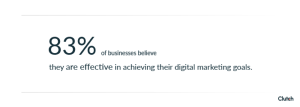But How Can I Make Money From It?
by Kaila Colbin, Featured Contributor, March 3, 2017
Another day, another presentation on exponential technologies. This one, to a group of high-growth business leaders. We go through the usual: The Law of Accelerating Returns. Doubling phenomenon applying to any technology that becomes information-enabled. Technological unemployment. Convergence. Opportunity. Terror.
And then the Q&A. And there’s that one guy — the scrappy entrepreneur, the one who looks at every situation and sees room for leverage, arbitrage, business growth — and his question is glaringly obvious: “It’s all very nice, but how can I make money from it?”
You can, obviously. You can invent the next Facebook, or Snapchat, or Airbnb. If you’re inclined toward more capital-intensive industries, you can go into autonomous vehicles, space travel, or both. You can invent handheld diagnostic devices or hamburgers made from plants that sizzle and bleed. The tools are there. These things are accessible. And there’s nothing in your way, other than market readiness and your own ability to execute.
And maybe those things are the right answer. But I would argue that it’s the wrong question. We’ve been asking the wrong question for a very long time.
Many years ago, I was the manager of a wholesale jewelry company. We attended 30 trade shows a year: vast, temporary cities of accessories and tchotchkes invading New York’s Javits Center or the Atlanta Gift Mart. Weary buyers, almost always female, in stilettos — stilettos! — trudging the linear miles of booths in search of the most resellable knick-knack.
On the rare occasion I was able to escape my booth, I would wander the halls in depressed amazement at the sheer volume of plastic, low-quality, disposable (but not recyclable), ornamental (but not functional), and otherwise utterly useless stuff in the world.
There is a reason these objects were for sale, of course, and it’s the simplest reason in the world. They were for sale because somebody would buy them.
And who am I to judge, right? Who am I to tell anyone they shouldn’t buy a plastic, low-quality, disposable (but not recyclable), ornamental (but not functional), and otherwise utterly useless thing, if that’s what floats your boat?
You are right: I am no one. But I would suggest to you that those things do not exist because we want them; we want them because they exist, and that is a very different proposition.
The temptation is so strong to separate ourselves from the world, to complain about the traffic without realizing that, in fact, we are the traffic. People buy these products — products with no lasting benefit to their purchasers or to the world — because that’s what is on offer.
And that’s what is on offer because we’ve been asking the wrong question: “How can I make money from it?”
When we should be asking a different question: “What does the world need from me?”
Fear not, capitalists. There’s a Venn diagram there. You don’t have to be poor to have a positive impact. You just need to accept a basic truth: Not everything that can be sold should be sold.
What does the world need from you? What are you good at? What do you love to do? And then — to complete the meme, and finally answer that one guy’s question — what will the world pay you for?
As our technologies become ever more powerful, their impact becomes ever greater. If we don’t hold at the forefront of our vision at least a glimmer of hope that their impact can be positive — and frame our questions accordingly — we have already lost.
MediaPost.com: Search Marketing Daily
(17)
Report Post






